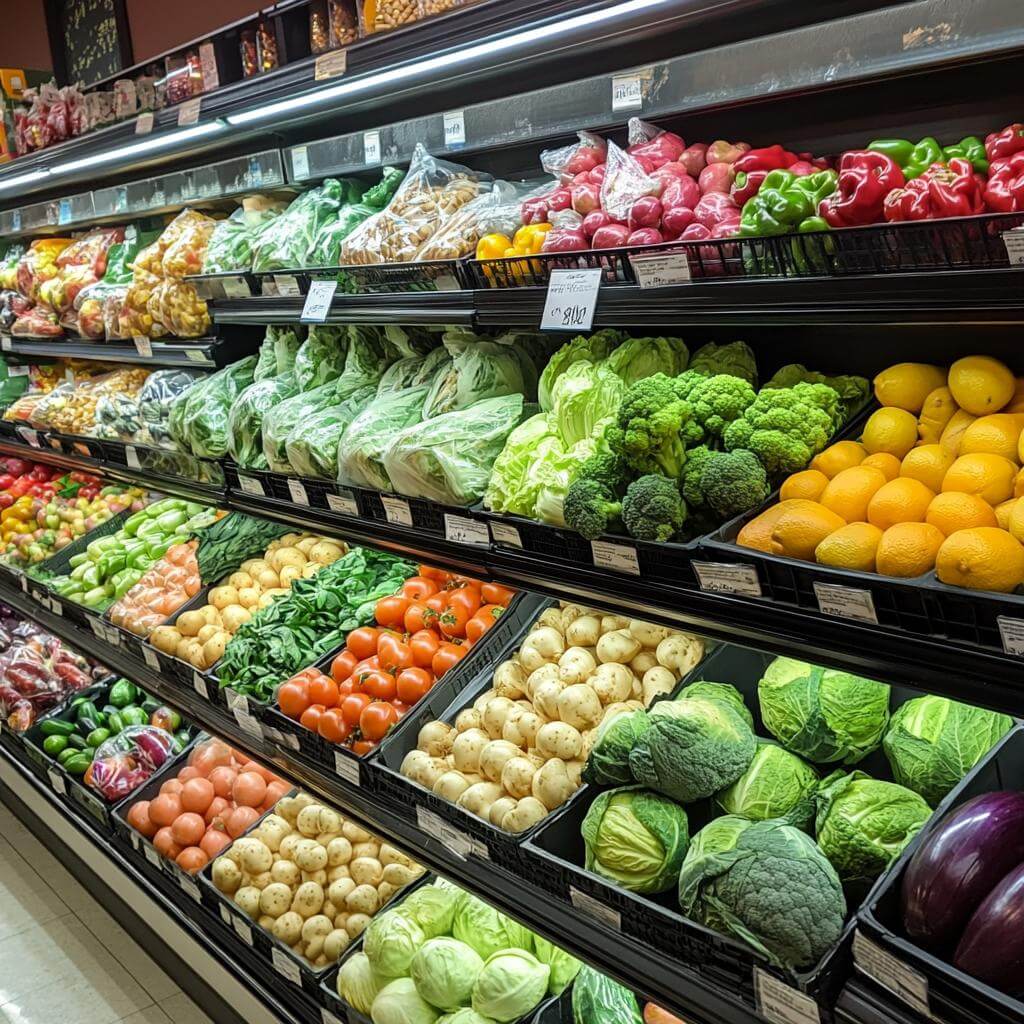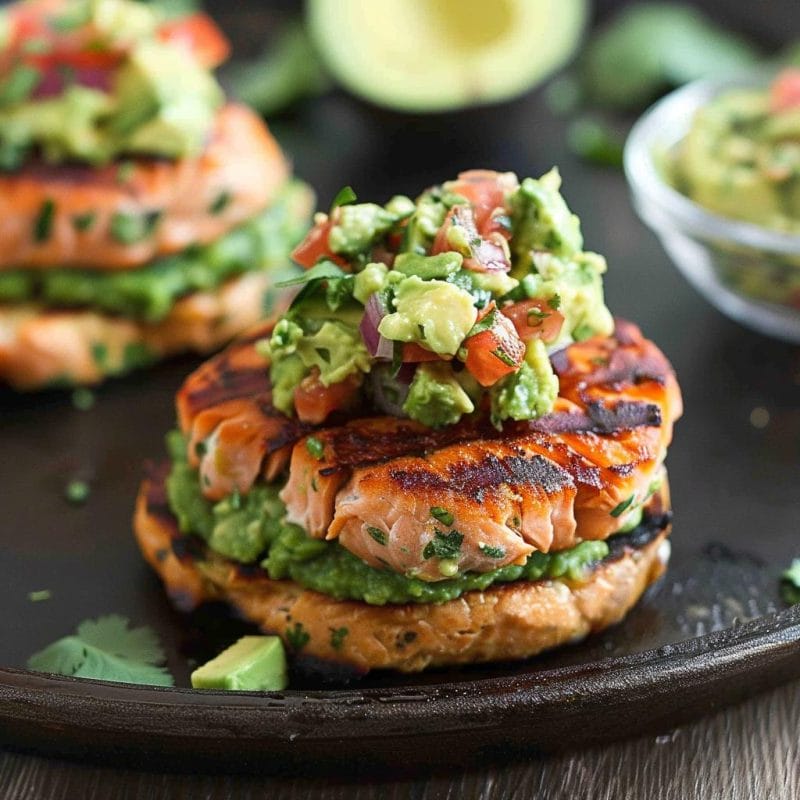Would you like to save this?
Are you looking for ways to cut down your grocery expenses and keep more money in your pocket? You’re not alone. According to Business Insider, the average American family spends between $330 to $400 a month on groceries—adding up to a staggering $4,000 to $4,800 annually. That’s a big chunk of your budget! But what if you could trim that number significantly with just a few smart strategies? In this article, I’ll walk you through six proven ways to reduce your grocery spending without sacrificing the quality of your meals. Let’s dive right in!
1. Plan Your Meals to Avoid Wasteful Spending
Ever gone to the store for “just a few things” and ended up dropping $75 on random items? Yeah, me too. The problem with heading to the grocery store without a clear plan is that impulse buying quickly takes over. You might think, “Do I have enough pasta? Better grab some just in case.” Or, “Am I out of cereal? Hmm, let’s grab a box.” And before you know it, your cart is overflowing with things you probably didn’t need in the first place.
Taking just 30 minutes to plan your meals for the week can prevent all that chaos. Start by checking what you already have at home. Build your shopping list based on ingredients you actually need, and you’ll avoid the dreaded second trip to the store (and the unnecessary spending that comes with it). Meal planning saves both time and money, so it’s worth making it a habit.
2. Shop Online to Stick to Your Budget
Many grocery stores now offer online shopping services—and they can be a game changer for your budget. By shopping online, you’ll have your list in front of you and can easily search for exactly what you need. There’s no wandering down tempting aisles filled with snacks and treats you never intended to buy. Another bonus? Many online stores let you save your favorite items in your cart, making your next shopping session even faster. Some platforms also offer discounts or promotions exclusive to online orders, giving you yet another way to save.
Pro tip: Be on the lookout for stores that offer free pickup or delivery discounts for first-time customers—it’s a great way to test the convenience of online shopping without extra costs!
3. Prep Freezer Meals to Avoid Last-Minute Takeout
We all have those nights when cooking feels like a chore. The temptation to order takeout is strong—whether it’s pizza or Chinese food—but those last-minute takeout splurges can quickly add up. That’s where freezer meals come in handy. By prepping meals in advance and freezing them, you’ll always have a backup dinner ready to go. Whether it’s lasagna, enchiladas, or a hearty soup, you can simply reheat your homemade meal and skip the expensive takeout. Freezer meals are also great for anyone trying to eat healthier since they help you avoid unhealthy fast-food choices when you’re too tired to cook.
Try adding a freezer-friendly recipe to your weekly meal plan. You’ll thank yourself the next time life gets busy and cooking feels impossible.
4. Switch to Store Brands to Cut Costs
If you’ve been ignoring store-brand products, you’re missing out on some serious savings. These “generic” products—like Great Value from Walmart or the Kroger brand—are often made by the same manufacturers who produce name-brand items. The difference? The packaging and marketing.
By choosing store brands, you’re essentially getting the same product for a fraction of the cost. For example, store-brand cereal, pasta, or canned goods often taste identical to their name-brand counterparts—but come at a much lower price. Start swapping out some of your regular items for store brands and see how much you can save over time. You might be surprised by how little difference there really is!
5. Never Shop on an Empty Stomach
We’ve all been there—you pop into the grocery store after work, your stomach growling, and suddenly everything looks delicious. Next thing you know, you’re filling your cart with cookies, chips, and random snack foods that weren’t part of your plan. Shopping while hungry is a surefire way to blow your budget.
Growing up, I remember my dad always insisted that we eat lunch before heading to the grocery store. And guess what? He was right. When you’re not ravenously hungry, you make smarter decisions and stick to your list. If you find yourself hungry before shopping, grab a snack or a quick meal to avoid falling into the trap of impulsive, unnecessary purchases.
6. Plan for Leftovers to Maximize Your Meals
Let’s talk leftovers. If the thought of eating the same meal two nights in a row sounds boring, you’re not alone. But planning for leftovers doesn’t have to mean reheating the same dish repeatedly. Instead, think of ways you can repurpose leftovers into new meals. For example, roast a whole chicken for dinner one night, and the next day, shred the leftover chicken for tacos, enchiladas, or a hearty soup. Got extra rice? Add some veggies and a protein to make a quick fried rice dish.
This strategy helps cut down on food waste—something that’s a big problem in many households—and ensures you get the most out of every meal. Plus, it’s a great way to save money without feeling like you’re eating the same thing over and over again.
FAQs About Saving on Groceries
1. How can I save money on groceries without sacrificing quality? Stick to store brands, plan your meals in advance, and shop with a detailed list. These small changes will help you buy only what you need without overspending.
2. Are online grocery services worth it? Yes! Online grocery shopping can save you both time and money by reducing impulse purchases. Many stores also offer online discounts or free delivery for new customers.
3. What are the best foods to buy for freezer meals? Casseroles, soups, stews, and baked pasta dishes like lasagna freeze well. Pre-chopped vegetables and proteins like chicken or ground beef are also excellent freezer staples.
4. How do I avoid food waste? Plan for leftovers by cooking meals that can be repurposed. For instance, use leftover chicken in salads or tacos the next day. Sticking to a meal plan also prevents overbuying perishable items.
5. Is it really cheaper to buy in bulk? It depends. Bulk purchases are only cost-effective if you use the items before they expire. Stick to non-perishable items like pasta, rice, or canned goods, and avoid buying perishables in bulk unless you can freeze them.
Final Thoughts: Small Changes Can Add Up to Big Savings
Saving money on groceries doesn’t mean you have to sacrifice delicious meals or quality ingredients. With a bit of planning and a few smart shopping strategies—like shopping online, choosing store brands, and prepping freezer meals—you can drastically cut your grocery bill. Remember, small habits add up over time, and before you know it, you’ll have saved hundreds (if not thousands) of dollars on groceries each year.
So, the next time you head to the store, bring your list, avoid shopping hungry, and keep those leftovers in mind. Your wallet will thank you!







